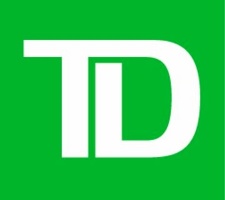@TDAM_Canada
Investor Knowledge + 5 Minutes = New Thinking
When it comes to Exchange-Traded Funds (ETFs), there is certainly no shortage of options for Canadians. There are currently over 1300 ETFs listed in Canada that provide access to all the major asset classes, sectors and geographic regions as well as many key investment strategies1. Of particular interest (for the purpose of this blog at least) are the ETFs that focus on Canada's beloved "big 6 banks."
There are quite a few ETF options available for Canadians that offer exposure to the big 6 Canadian banks. These ETFs can have very similar approaches to their weighting of the various banks. Two of the types of strategies are:
- Strategies that provide equal-weight exposure, which invests the same weight in each of the 6 banks.
- Strategies that innovated on this equal weight approach and overweight and underweight based on a specific criterion. Some rely on mean reversion, which will likely put more weight in companies that recently underperformed and less weight in companies that recently outperformed with the idea that they'll likely both converge to the mean. Other strategies focus on metrics such as dividend yield, which is found by dividing the dividend amount by the price.
These strategies all do one thing very well, and that is to provide exposure to the big 6 banks in a one-ticket solution. The one key element that these strategies have in common is that they rely on the banks performing similarly over the long run. At first thought, that sounds about right. So, in reality, have the banks all performed roughly the same in the long run?
Not quite.
Over the last 20 years, the total returns of the big 6 Canadian banks have indeed all moved toward an upward trend. However, three banks have materially outperformed the rest.
Why the outperformance?
There is one measurement that is essential to any business, and that is earnings growth. The next question for a company is what they do with those earnings. Three common uses include:
- Reinvest in the company
- Buy back shares
- Pay dividends
To simplify things, if a company is growing their dividend payments, this is typically a result of strong earnings growth, and if earnings are growing, a company's stock price will likely rise as well. So, have the banks been growing their dividends against the backdrop of strong earnings growth?
The short answer is yes.
Canada's big 6 banks have collectively grown their dividends by almost 400% over the last 20 years2. As a collective, the banks have regularly increased dividends over time, but how about individually?
During the last 10 years and 20 years, banks that have increased their dividends the most were also the best performers most of the time2. In both timeframes, the top three performers were also the top 3 dividend growers.
Now, if only there was an ETF in Canada that could use this information to formulate a strategy to Canadian bank investing.
A unique Canadian bank dividend investing strategy
Leveraging extensive research on the correlation between earnings growth and dividend growth for Canadian banks, TD Asset Management Inc. (TDAM, "we") has built an innovative Canadian bank ETF, TD Canadian Bank Dividend Index ETF (TBNK), providing more options and opportunities for investors.
We worked with Solactive, an indexing company, to build a custom index that follows a unique rules-based methodology that puts a higher weighting in the banks that grow their dividend the most. Specifically, once a year the index will rank all constituents from 1 to 6, based on their 12-month trailing dividend growth. The best ranked bank will get the highest weighting, the second best ranked will get the second highest weighting and so on. The portfolio then will rebalance to these weights on a quarterly basis.
We believe this to be a more unique and rewarding strategy because banks with the highest levels of profitability, and superior execution through a business cycle, will ultimately increase their dividends more quickly than their peers.
1 Source: Morningstar Direct. Data as of April 11, 2023.
2 Bloomberg Finance L.P., as of December 31, 2022. The above shows the sum of the dividend per share of the 6 big Canadian bank equity securities. Tickers: TD, RY, CM, BNS, BMO, NA.
The information contained herein has been provided by TD Asset Management Inc. and is for information purposes only. The information has been drawn from sources believed to be reliable. Graphs and charts are used for illustrative purposes only and do not reflect future values or future performance of any investment. The information does not provide financial, legal, tax or investment advice. Particular investment, tax, or trading strategies should be evaluated relative to each individual's objectives and risk tolerance.
Certain statements in this document may contain forward-looking statements (“FLS”) that are predictive in nature and may include words such as “expects”, “anticipates”, “intends”, “believes”, “estimates” and similar forward-looking expressions or negative versions thereof. FLS are based on current expectations and projections about future general economic, political and relevant market factors, such as interest and foreign exchange rates, equity and capital markets, the general business environment, assuming no changes to tax or other laws or government regulation or catastrophic events. Expectations and projections about future events are inherently subject to risks and uncertainties, which may be unforeseeable. Such expectations and projections may be incorrect in the future. FLS are not guarantees of future performance. Actual events could differ materially from those expressed or implied in any FLS. A number of important factors including those factors set out above can contribute to these digressions. You should avoid placing any reliance on FLS.
TD Asset Management Inc. is a wholly-owned subsidiary of The Toronto-Dominion Bank.
®The TD logo and other TD trademarks are the property of The Toronto-Dominion Bank or its subsidiaries.
 Canada
Canada

